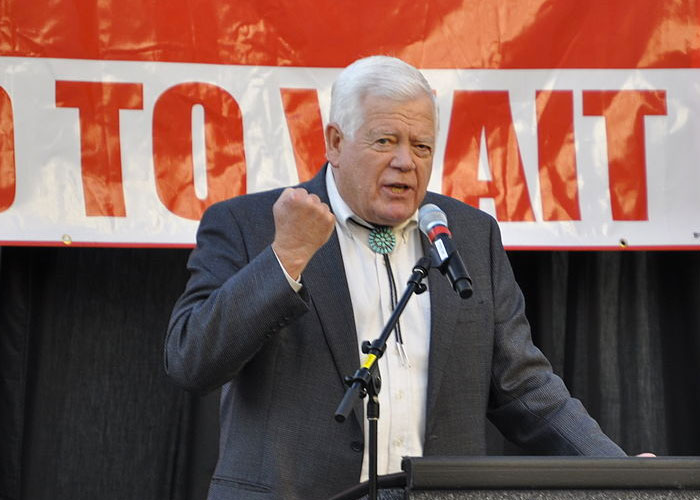In a letter sent to US Secretary of Defense Hagel, US Congressman Jim McDermott, has asked the Pentagon to release all available information on its use of depleted uranium (DU) in Iraq. The pressure to be transparent about the use of this chemical toxic and radioactive material used in ammunition is growing.
The United States used more than 440.000 kg of this ammunition during the Iraq wars in 1991 en 2003. Earlier this year the Dutch peace movement PAX published a limited number of target coordinates.
“The data, made available through a Freedom of Information (FoI) request to the Dutch Ministry of Defence, revealed that DU has controversially been used against a wide range of targets and in populated areas”, says Wim Zwijnenburg from PAX. “These data are only a top of the iceberg. Together with other organisations we are calling for more transparency and to make sure that the toxic waste is being removed.”
According to the US Congressman, transparency over DU use is urgently required as ‘prolonged exposure to DU, especially through inhalation or ingestion of DU dust, can cause a myriad of potential long-term health consequences’. There is particular concern over workers on contaminated scrap metal sites and civilians who live nearby.
Political benefits
In a letter to the American government McDermott argues that releasing the information would be ‘beneficial to all parties’, noting that the work of demining organisations in areas contaminated by both explosive remnants of war and DU is being hampered by the lack of transparency. The US State Department is a major donor for mine action work in Iraq.
McDermott also underlines the political benefits of greater openness, recognising that the US has a responsibility for the toxic legacy of the wars in Iraq and the unintended ramifications of the use of certain munitions. Therefore ‘removing the physical manifestations of our military legacy in Iraq would help foster mutual understanding, vital to our future strategy in the country.’
Online petition
The letter adds to the growing pressure on the US government to provide transparency over its use of DU in Iraq. The US-based Center for Constitutional Rights (CCR) recently filed a request under the Freedom of Information Act (FOIA), asking for the release of all DU firing coordinates in the country. Leah Todd from the CCR stated that “The United States’ refusal to take responsibility for the impact of its war munitions is exacerbating the harm done to Iraqis and the lack of treatment for U.S. Service members and veterans. Once we know the firing coordinates of DU weapons, organizations on the ground can finally begin to study the effects of these materials and clean them up before they do more damage”.
Together with Iraqi Veterans Against War, the CCR has also launched an online petition calling on the US government to stop voting against UN resolutions on DU. Resolution A/1/69 L.43, which was backed by 143 states last week and will be voted on again by the UN General Assembly in December, calls for transparency over the use of DU and for the international community to help states affected by the weapons. The US, together with the UK, France and Israel were the only four states to oppose the resolution.
Reed also Depleted uranium coordinates needed for clean-up of dangerous sites in Iraq
See also our programme Depleted uranium




